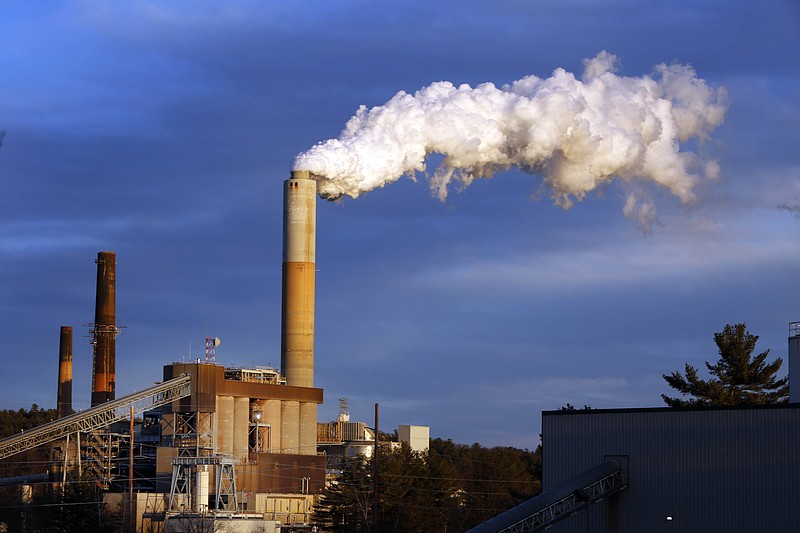If the world's greenhouse gas emissions continue unchecked, one in every six species on the planet could go extinct.
Yes, one in six.
That's the finding of new research just published in the journal "Science."
The affects go far beyond the lone floating polar bear that for a time was the go-to symbol of global warming.
Even before this new research, climate change was a big factor in what has been tagged "The Sixth Extinction," potentially the worst die-off in Earth's history since the dinosaurs disappeared 65 million years ago," according to InsideClimateNews.org, a Pulitzer Prize winning online publication.
It goes without saying that such dramatic species losses would affect our lives. Just think of the new threats to our food security, our economy and our health.
"Imagine if we lose an important predator for an agricultural pest," said Mark Urban, an expert in ecology and evolution at the University of Connecticut and author of the new study. "Suddenly we have a major pest problem that threatens our ability to grow food."
Like bats. Oh, wait, that's already happening and climate change has been linked to the bat die-offs from a fungus dubbed white-nose syndrome.
Our oceans already are struggling to adapt, and that in turn is affecting fish, plants, animals, birds and insects as ocean-influenced habitats and rainfall patterns change.
The American pika, a small mouse-like mammal intolerant of heat already has disappeared from more than one-third of its known mountain habitats, according to InsideClimateNews.org. Warming ocean temperatures are threatening coral across the globe. Sea level rise is eliminating the mangrove forest habitats of India's tigers and shrinking the South American beaches used by sea turtles to lay their eggs.
Urban analyzed 131 other extinction predictions to reach an average and global estimate. He found that extinction risks were highest in South America, Australia and New Zealand. North America and Europe have the lowest risks.
He said the world could lose 5.2 percent of species if temperatures rise 2 degrees Celsius -- which world leaders agree the world must stay under to avoid catastrophe and which scientists say is now likely unavoidable. If the Earth warms 3 degrees, this extinction rate jumps, and if temperatures rise 4.3 degrees -- a likely scenario if nations refuse to curb their emissions soon -- 16 percent of species will be lost. That's where the one in six number comes from.
Urban said he undertook the study because the world "critically" needs to know how climate change will influence species extinction rates in order to inform international policy decisions. Decisions that would include prioritizing our responses and possible protections of the most threatened and needed species.
Stuart Pimm, an expert on extinctions at Duke University, told InsideClimateNews.org that Urban's analysis has some limitations, including scientists' inability to predict whether species will adapt or die off, but Pimm said Urban's broad takeaways are correct and that the less governments do to combat climate change, the higher the extinction rates will be.
"We are going to hand over to our children and grandchildren a world that is seriously depleted," Pimm said.
In 2014, scientists said that if we earthlings could limit the amount of carbon dioxide we sent into Earth's atmosphere to 3.2 trillion metric tons of CO2, we would give the world a 66 percent chance of avoiding runaway global warming. We're already two-thirds of the way through that limit and now emissions are on pace to exhaust the budget in 30 years.
President Obama's treaty with China may help, if all nations involved follow through.
Technological advances would help, as well, in solar and other renewable power equipment and in energy savings and carbon capture advances.
The world's scientists are up to the task. The question is are we and our leaders? Government and investor money will have to get behind the efforts.
What we simply cannot do is nothing. Or worse, continue our still-steady rise in fossil fuel use.
Yes, Chicken Little. The sky is falling. And the clock is ticking.
